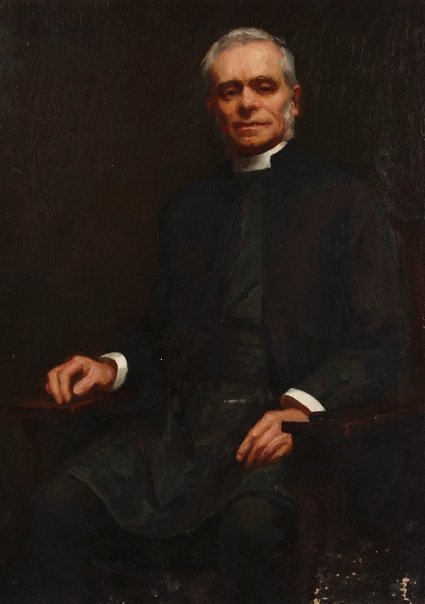In their famous 1989 book
Resident Aliens, Stanley Hauerwas and William H. Willimon describe the end of a world - the capitulation of Christendom to secularism - in 1963 when a local cinema opened on a Sunday.
I started school in 1990. It was a state school on the urban fringe of Sydney. About half the buildings at the time were demountables. In between learning to tie my shoes and get through the day without a nap, there was a whole new "liturgy" that I had to learn. In particular, there were two sets of words the student body was expected to know.
- The first was a song that was sung every few weeks at the school's formal assembly. It turned out this song was God Save the Queen, which had only been relegated from Australia's national anthem to Australia's royal anthem several years earlier when the graduating year of 1990 had started school (i.e. 1984). Looking back on it now, and the painting of Queen Elizabeth II from the late 1960s which hung in the office, my primary school feels like sometimes it would be at home on The Crown.
- The second, I would come to learn, was The Lord's Prayer, which was said at least once per week during school assembly. As we stood in straight-ish lines on the asphalt quad, the older years would recite the prayer from memory - Protestant bit and all.
That world has long since past. For me, it disappeared almost in the twinkle of an eye, and had vanished by the time I started my second year at primary school. With the weight of globalization as the cold war ended, along with a rising sense of an Australian identity, republicanism, multiculturalism, and an increased awareness of our indigenous heritage, it's surprising that I even encountered these two sets of words regularly at school in the first place.
It would be tempting though to ascribe their disappearance to the irreversible tide of secularism, which seems to sweep Australia with increasing ferocity every five years as census results are announced. According to popular assumption, religion is occupying a declining space in public ad private life, and eventually will all but vanish from Australian life (except for indigenous religion apparently, because that can explained away as "cultural").
It might just be that Christendom took longer to root out from Australia's Blue Mountains than it did to the American South. Admittedly, Australia has a long and complicated relationship between faith and society. But amidst those complications, Australia has been, by and large, accommodating (
e.g. not antagonistic) towards religion. And the truth of the matter is that secularism is not a new phenomenon in Australia; it has been with European Australia since 1786 when Richard Johnson was appointed Chaplain to the First Fleet.
Although it may come to a surprise, secularism is a thoroughly Christian achievement. The word “secular” has come to mean “non-religious”; drop by any P&C meeting these days and when the world "secular" is used, it is understood to be in opposition to faith and organised religion. But it was never meant to mean that. “Secular” comes from the Latin word
saeculum, which means “age.” It was developed by Augustine of Hippo to account for the now and not yet eschatological tension Christians find themselves in. By definition, the opposite of “secular” is not “sacred” but “eternal”. So “secular ” means “of this age” rather than the eternal.
Secularism actually is a consequence of the gospel of Jesus Christ, which announces that all earthly governments have been relegated to penultimate status. The Australian government is not eternal. Each and every government is secular because there will come a time when the governments of the world cast their crowns before the lamb who was slain. As Oliver O’Donovan has helpfully written:
“The most truly Christian state understands itself most thoroughly as “secular”. It makes the confession of Christ’s victory and accepts the relegation of its own authority… The essential element in the conversion of the ruling power is the change in its self-understanding and its manner of government to suit the dawning age of Christ’s own rule.”
With the ascension of Jesus Christ, secularism is the stripping of governments of their pretensions to command our absolute and whole-hearted obeisance.
Rather than the rise of secularism then, I wonder perhaps what we have witnessed in Australia over recent decades is the loosening of our common bonds. The traditions and institutions which have served our society have gradually been weakened and become unintelligible to us. Philosophically, concepts such as secularism and representation have become gibberish to us, unmoored as they are to their original intent and purpose. Whatever the case, we may have reached a point expected by several cultural commentators, who foresaw it with a sense of joy (Nietzsche), sadness (Tolkien), or despair (TS Eliot).
For O'Donovan, it actually is an occasion for chastened optimism for gospel opportunities in a society like ours. He writes that "Western civilization finds itself the heir of political institutions and traditions which it values without any clear idea why, or to what extent, it values them." Christian witness and theology has an opportunity to shed light on institutions and traditions whose intelligibility is seriously threatened. There is an apologetic value for Christians to think theologically about politics during a crisis of confidence in our politics. This is unlikely to result in a return to the situation of my primary school in 1990. That may not even be desirable. However, what is needed from Australian Christians is a commitment to our institutions and society at large for the sake of the common good because we know Jesus' lordship over all things. To do so would be to swim against the current and buck the trend that has dominate western societies at large since the 1960s (at least). But perhaps Christians are at their best in society when their swimming against the general trends.
